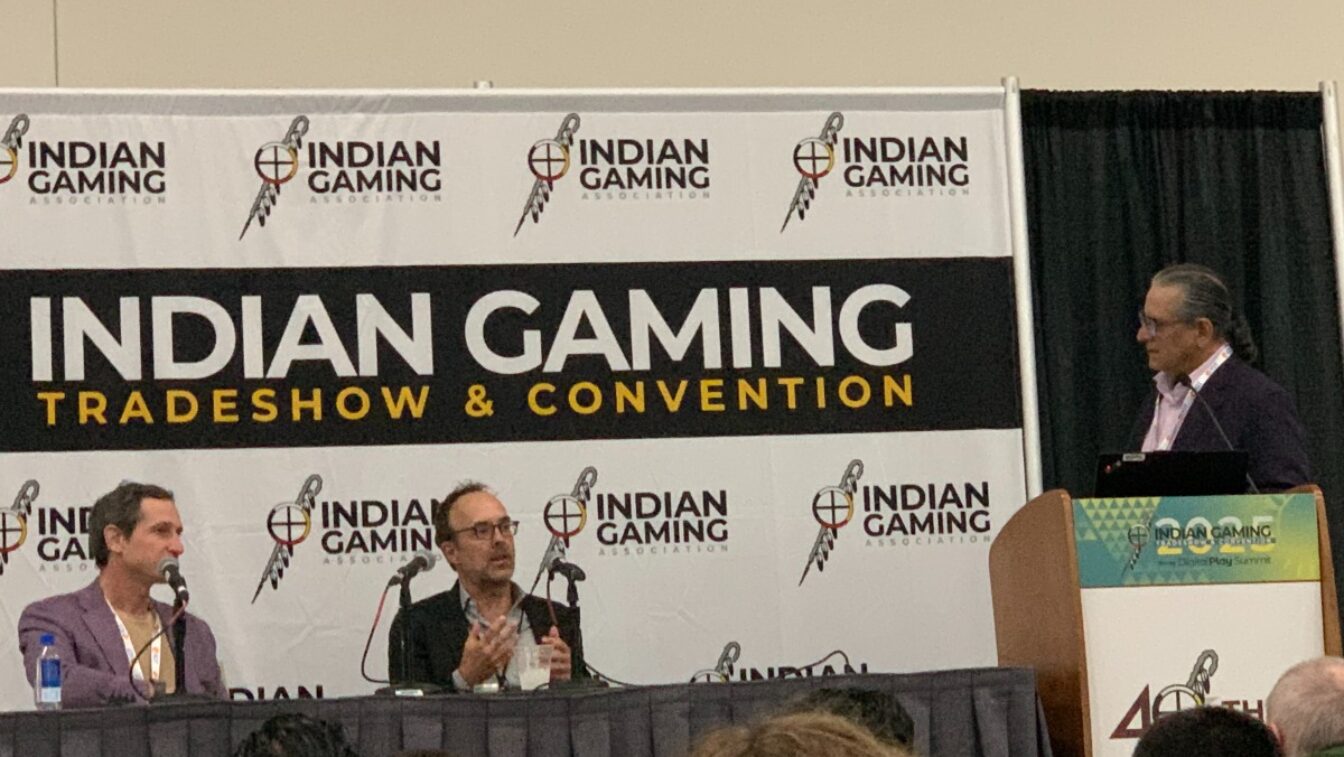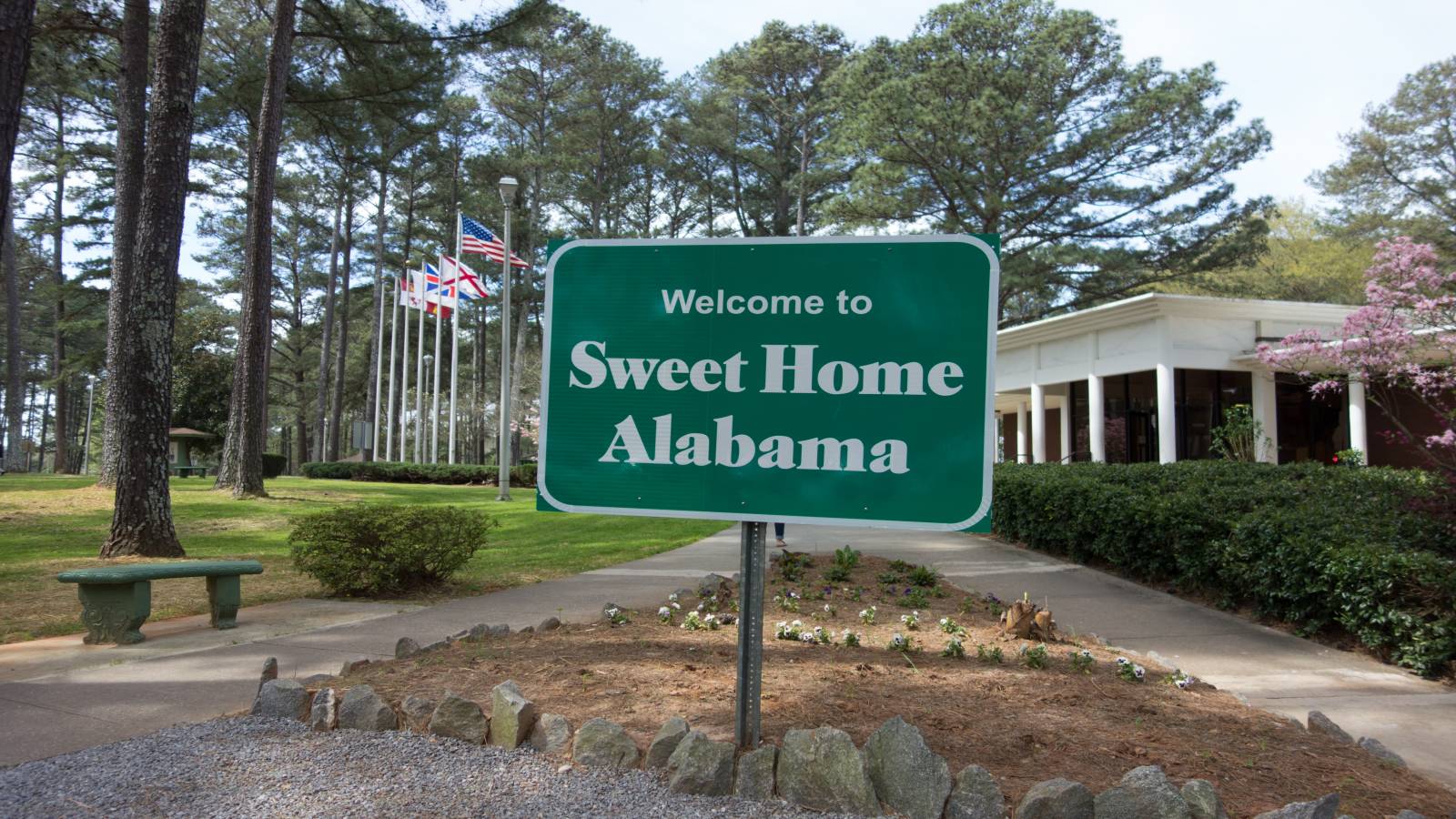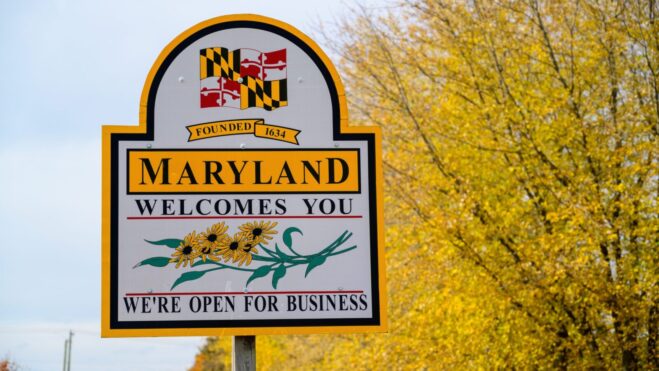Breaking: Tribes, Commercial Entities Consider Similar Plan For Legal California Sports Betting
Two years ago, such a conversation would have been unimaginable
5 min

SAN DIEGO — The Sports Betting Alliance on Tuesday unveiled a plan to bring legal sports betting to California, promising to pay for an initiative while allowing the state’s tribes to run it. Turns out, Indian Country is considering the same plan. There is still much that has to happen before an initiative is sent to California voters, but two years ago, such a conversation would have been unimaginable.
At the Indian Gaming Tradeshow & Convention in San Diego, representatives from DraftKings and FanDuel shared the idea of creating a single tribal entity in California, which has 109 tribes. That entity would then contract with national operators to offer online sports betting in the most populous state in the U.S.
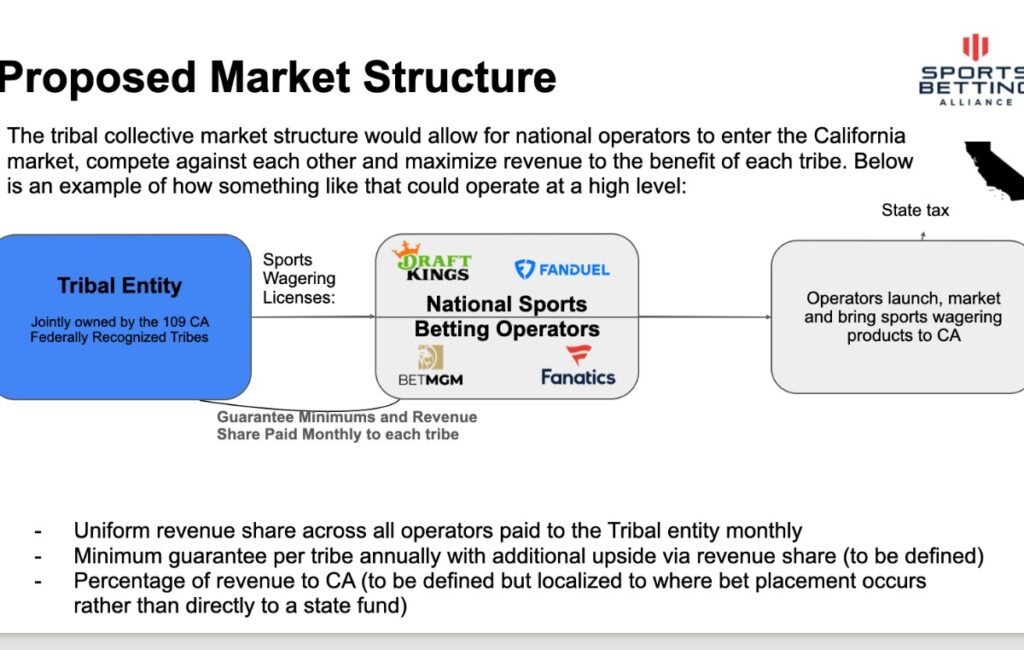
As part of the proposal, the SBA members — and possibly other national operators — would compete against each other, pay a “minimum guarantee per tribe” annually and share revenue with all tribes. The plan would take all of the risk off the tribes while the operators said they would finance an initiative.
The number of operators in California could potentially be limited to four. An SBA representative said that the tribes will ultimately determine which entities and how many are licensed. Should the tribes choose only to work with the SBA, bettors in the state would not gain legal access to platforms such as ESPN Bet, Hard Rock, Prime Sportsbook, and Sporttrade.
(Editor’s note: The SBA told Casino Reports that the “logos on the slide are simply a function of who the SBA represents. The slide was not meant to be an indication of the full market.”)
Caesars Sportsbook may well choose to stay quiet through this process as it did in 2022. The company already has a long-standing partnership with a tribe through its Harrah’s brand.
And while DraftKings and FanDuel have been wooing Indian Country since a failed ballot initiative in 2022, conference chairman Victor Rocha one day earlier said that MGM “would not get a pass” in California, after fighting against tribes in other U.S. jurisdictions. BetMGM is a separate entity from MGM, and is jointly owned by Entain and MGM.
Merits, uses of IGRA debated
California National Indian Gaming Association Chairman James Siva told DraftKings’ Jeremy Elbaum and FanDuel’s Frank Sizemore that “we’ve looked at this [model] ourselves.” He went on to ask Elbaum and Sizemore if their plan would be “inside” or “outside” of the Indian Gaming Regulatory Act (IGRA), the federal law that governs Indian Gaming.
Elbaum said he wasn’t sure and suggested there are “nuances from IGRA that could break this.” He went on to say that whatever the structure, the SBA’s goals for California sports betting are to include all tribes at no cost to Indian Country and protect tribal sovereignty.
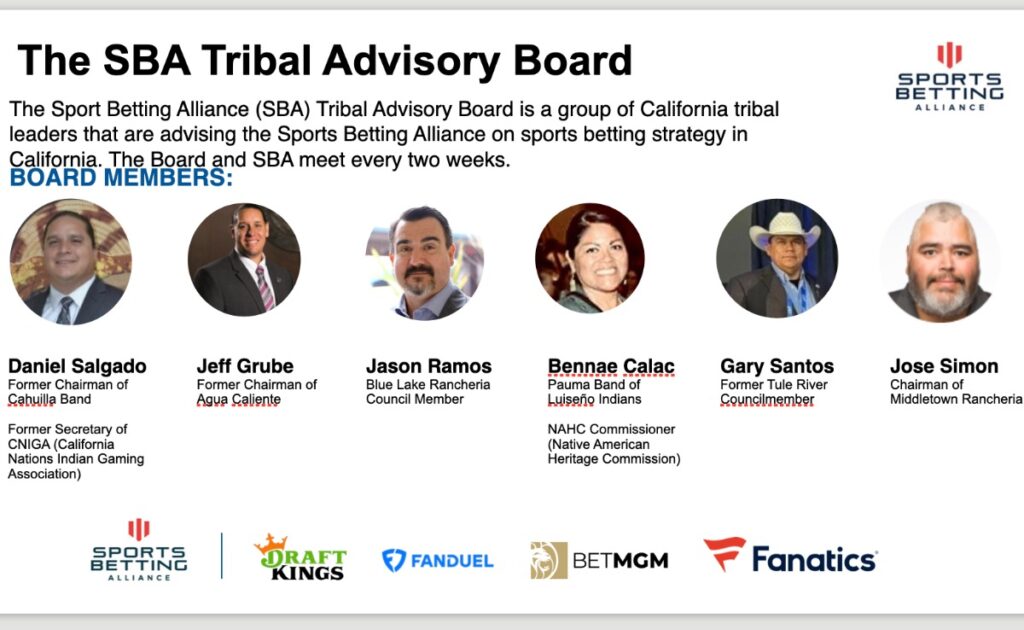
Daniel Salgado, former Cahuilla Band chairman and CNIGA secretary who is now part of the SBA’s tribal advisory board said IGRA “isn’t a godsend for everyone” and “there are some parts of it that are not so great for tribes.”
In essence, the conversation points to the possibility that the industry and the California tribes could make a commercial agreement for wagering rather than open their compacts to add digital sports betting.
DraftKings: We won’t bring prediction markets
The more than hour-long meeting netted several key promises from SBA members. In recent months, the legal betting industry has been carefully monitoring the rise of prediction markets, which may be a risk to some and an opportunity to others. Companies like Kalshi and Crypto.com, exchanges regulated by the Commodity Futures Trading Commission (CFTC), have begun offering “event contracts” on sporting events. The platforms are not regulated by states or required to have the same safeguards as legal wagering operators.
Some operators view the move into sports by these exchanges as an end around to state regulation, licensing, and taxation, and so far three states have issued a cease-and-desist order to Kalshi. In New Jersey and Nevada, Kalshi has filed suit in response, seeking an injunction to allow operations to continue.
Siva is concerned that should a deal between the tribes and the SBA collapse the operators would circumvent the state process and offer betting via prediction markets. Consider the following exchange:
Siva: “If that rule is proposed is this all for naught and you’ll block California?”
Elbaum: “For California, this (sports betting) is the only thing that we are out here to do. We’re either going to make this succeed or not.”
Siva: “So if we don’t come to the table or can’t come to an agreement, are you going to bring (prediction markets) into California? I’ve seen DraftKings futures already and I am sure that FanDuel has some coming, too.”
Elbaum: “No, that might fit somewhere else, but not here.”
While DraftKings said it is committed to not bringing prediction markets to California, such a pact would not preclude others from doing so, should the CFTC formally authorize sports-related markets on registered exchanges.
Tribes: No online casino yet
Siva also pushed for Elbaum and Sizemore to promise that there would be no language in an initiative or contract that would eventually allow for online casinos. As the tribes moves closer to considering a partnership with the commercial industry for sports betting, they are wary of making any commitments around online casinos as well.
Siva: “If this was to go online at what point do you all move on to online casino? Would there be language saying you won’t go into online casinos? If you go to online casinos, you compete with all of us.”
Elbaum: “We’re not here for that. We’re open to the language. This is not for online gaming, it’s for online sports betting.”
Sizemore suggested that such language might not be possible in an initiative, but that Indian Country and the SBA could have a separate agreement around online casinos. Tribes are extremely protective of their brick-and-mortar casinos, which are key employers on reservations.
Overall, the meeting went far deeper into what could happen in California than Monday’s panel with DraftKings co-founder Jason Robins and FanDuel President Christian Genetski. But it continued the theme of open communication, and of DraftKings and FanDuel’s desire to smooth over a difficult period to reach a deal.
Not all tribes attended the meeting. While Siva often speaks for the majority of California’s tribes, the most powerful gaming tribes — among them Graton Rancheria, Pechanga, and San Manuel — have much sway.
All for one and one for all
Toward the end of the meeting, several tribal leaders voiced concerns. Tribal Chairperson and Elder of the Estom Yumeka Maidu Tribe of the Enterprise Rancheria Glenda Nelson said she’d like to see the “percentages” involved in a deal, calling that the “elephant in the room.”
“We as tribes really want to make sure that we have the lion’s share,” she said. “But we don’t want to give up 30-40 percent of it, … We want to make sure that all of the tribes are taken care of, … I really think it’s a top goal of California tribes that we all share equally.”
Wilton Rancheria Chairman Jesus Tarango called gaming “a gift. But with that gift came a responsibility to take care of everyone. … For me, it’s about fighting for all of the tribes. In California it’s about fighting for all of our tribes. This is our state, it’s going to be at our speed. But let’s talk about it. Let’s get the issues on the table. How is it that we haven’t got this done yet?”
California’s non-gaming tribes get an annual payment of $1.2 million per year from a trust gaming tribes pay into. The SBA is projecting that number could jump to between $5 to $10 million if this plan is effectuated.
At issue in Indian Country is the huge disparity between wealthy gaming tribes and poorer rural tribes. Some tribes benefit simply from geography — being near a major population center or a key freeway. Others have access to neither. For those tribes, $5 to $10 million annually could be “life changing.”


